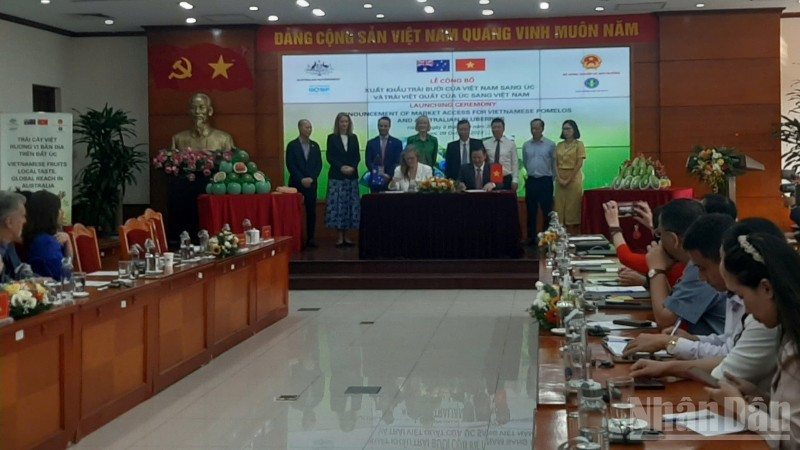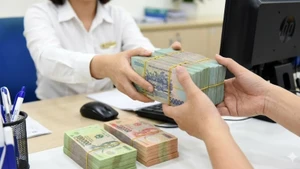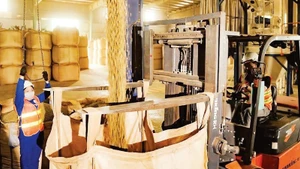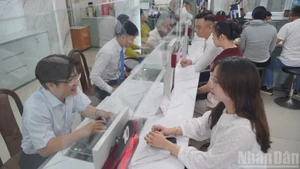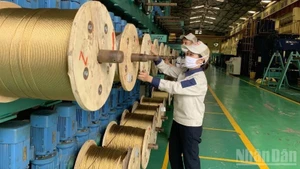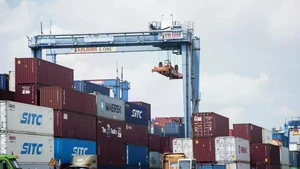Speaking at the event, Deputy Minister of Agriculture and Environment Hoang Trung emphasised that this is a special event in agricultural cooperation between Viet Nam and Australia. It not only has commercial and technical significance but also reflects mutual trust, understanding, and shared commitment towards sustainable development for the benefit of farmers and consumers of both countries.
In 2023, the Plant Production and Protection Department (then the Plant Protection Department) received a notice from the Australian Department of Agriculture, Fisheries and Forestry (DAFF) regarding pest risk analysis for Viet Nam’s pomelos. After two years of close collaboration, both sides completed the technical requirements and reached an agreement to allow the import of fresh Vietnamese pomelos into Australia.
Pomelo has thus become Viet Nam’s eighth fruit permitted for export to Australia, after dragon fruit, mango, longan, rambutan, lychee, star apple, and passion fruit. Conversely, blueberries are now Australia’s seventh fruit authorised for export to Viet Nam, after grapes, oranges, mandarins, cherries, peaches, and nectarines.
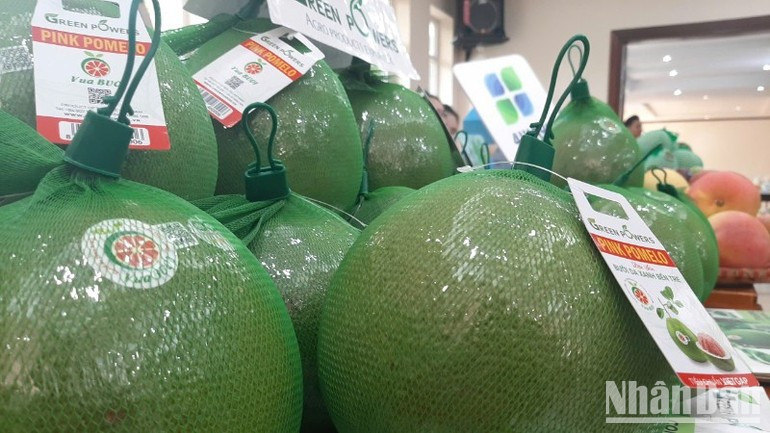
At the ceremony, representatives of the Ministry of Agriculture and Environment and the Australian Embassy signed the import conditions for Australian blueberries entering Viet Nam and the Operational Work Plan specifying the import requirements for Vietnamese pomelos entering Australia. The two sides also shared cooperation potential and discussed technical regulations and conditions in fruit production, quarantine, and import-export between the two countries.
Deputy Minister Hoang Trung said that Australia has become one of Viet Nam’s reliable and important partners in the global agricultural supply chain. In 2024, two-way agricultural product trade turnover reached 2.24 billion USD. However, there remains considerable room for cooperation to fully realise its potential.
The Deputy Minister urged Vietnamese agencies, localities, and enterprises to strictly comply with Australia’s regulations on plant quarantine, traceability, and food safety; while also to enhance training and communication for people to ensure the quality and reputation of Vietnamese agricultural products in the international market.
For its part, the Plant Production and Protection Department will continue working with relevant agencies to guide the establishment and certification of growing areas and packing facilities, as well as implement quarantine measures ensuring that exported pomelos meet Australia’s market standards.
From Vietnamese pomelos and Australian blueberries, the two countries expect to open a new chapter in sustainable agricultural cooperation, contributing to further deepening the Viet Nam–Australia Comprehensive Strategic Partnership.
